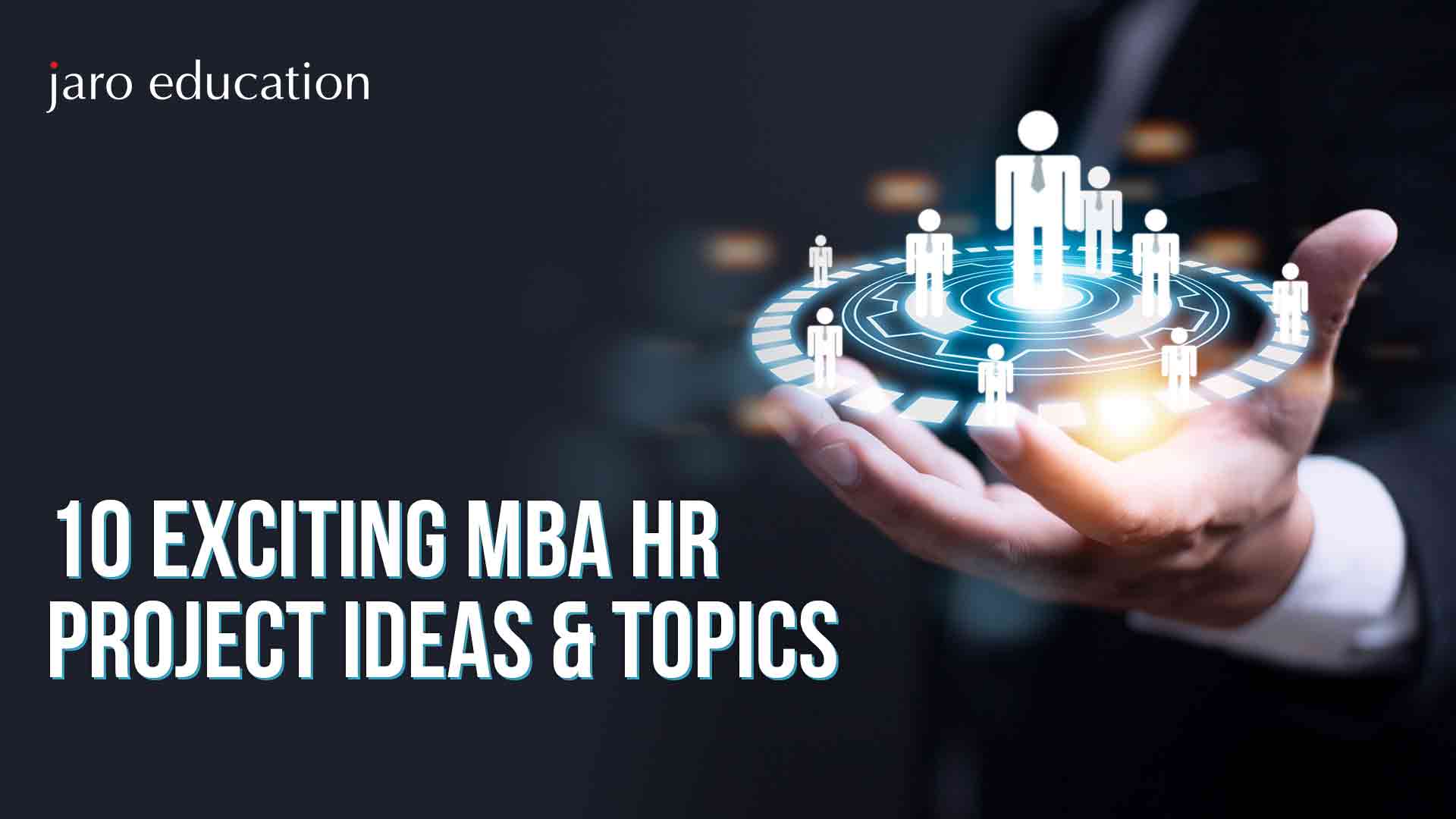
10 Exciting MBA HR Project Ideas & Topics
Pursuing an MBA, despite being an elective with a concentration in people and culture, is a course that changes lives and boosts students to become masters in the ever-changing paradigm of business. Part of this journey includes the MBA project which involves a capstone course where students are provided real-world problems to apply newfound knowledge to demonstrate a depth of learning and innovative approach.
The future of organizations is shaped by innovative HR projects in an agile business landscape. These initiatives can range from developing a more inclusive workplace culture to streamlining human resources (HR) processes through the application of technology and help make great things happen for your organization. They speak to modern-day issues and offer real tools to fix CPQ practices, reduce turnover and disenchantment, and increase economic efficiency across the board.
The purpose of this blog is to inspire MBA students with a curated list of exciting MBA HR project topics. These ideas are designed to spark creativity, encourage critical thinking, and ultimately help students make meaningful contributions to the field of HR. Whether you’re looking to explore new trends, solve pressing issues, or innovate existing practices, these MBA HR project topics will guide you toward a successful and impactful MBA experience. By focusing on relevant MBA HR project topics, students can ensure their projects are aligned with current industry needs and challenges, setting them up for success in their future careers.

Table Of Content
1. Employee Engagement and Retention Strategies
2. Impact of Remote Work on Employee Productivity
3. Diversity and Inclusion in the Workplace
4. Performance Management Systems
5. Training and Development Programs
6. Employee Well-being and Mental Health Initiatives
7. Talent Acquisition and Recruitment Strategies
8. Organizational Culture and Change Management
9. Compensation and Benefits Analysis
10. Technology and HR: Digital Transformation
Conclusion
1. Employee Engagement and Retention Strategies
2. Impact of Remote Work on Employee Productivity
3. Diversity and Inclusion in the Workplace
4. Performance Management Systems
5. Training and Development Programs
6. Employee Well-being and Mental Health Initiatives
7. Talent Acquisition and Recruitment Strategies
8. Organizational Culture and Change Management
9. Compensation and Benefits Analysis
10. Technology and HR: Digital Transformation
Conclusion
Innovative HR projects play a crucial role for MBA students, serving as a bridge between theoretical learning and practical application, and driving significant advancements in organizational practices. These projects not only enrich the educational experience but also arm students with vital skills that are highly valued in the HR sector.
Selecting a project that aligns with one’s personal interests and career aspirations helps maintain motivation and engagement. Whether one is passionate about employee engagement, diversity and inclusion, or the use of technology in HR, choosing a project that resonates with these interests will enhance learning and impact. For those looking for inspiration, exploring various MBA HR project topics can provide valuable direction and ensure the project is both relevant and impactful.
Readers are encouraged to share their own project ideas and experiences in the comments section. By exchanging insights and feedback, everyone can learn and continue to innovate in HR. This collective inspiration will contribute to creating a more dynamic, inclusive, and efficient workplace for the future. Considering a wide range of MBA HR project topics can also help in generating fresh ideas and approaches that address current industry challenges.

